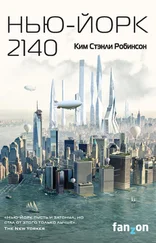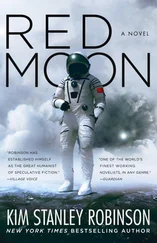“No.”
The ship shuddered through a thick crest. White water coursed down the lee rail of the deck. “We’d better get below,” Nadezhda said. And indeed Sonam Singh was in the hatchway gesturing fiercely at them. As the ship skated down a swell they dashed for the hatchway, were pulled roughly down it.
“Keep inside,” Singh ordered. “Go to the bridge if you want to see, but stay out of the way.”
Crew members rushed by, dripping wet and bright with exhilaration. “They’re going on deck?” Tom asked.
“Setting the sea anchor,” Singh replied, and followed them out.
The passageways seemed narrower. You had to use the wall for support, or be banged against it. Up broad steps to the bridge, which was split into two rooms, one above the other. The top room was the cockpit of action; Captain Bahaguna and the helmsman were standing before the window watching the ship and waves through crazy patterns of water dashed against the glass. The fourth mast stood before them like a white tree. The lee railing, to starboard, was running just above the water, and crests boiled right over it and coursed back to the stern. That gave Tom a shock—the ship, buoyant as it was, still shouldered through the water like a submarine coming to the surface. The sky was a very dark gray now, and the broken white sea glowed strangely under it.
The captain watched the control terminal. It had a red light blinking among the greens. “We’ll probably lose that sail,” Bahaguna said, then saw Tom. “That block is stuck again. Here, get into the room below and get strapped into a seat. The real squall is about to hit.”
The horizon had disappeared, replaced by a gray wall. They got to the room below holding onto rails with both hands, sat in empty chairs and fastened the seat belts.
They were headed straight into the waves. The bowsprit spiked an onrushing white hill of boiling water, lifted up a big mess of it that rushed down the deck, sluicing off both sides, until a wave some four feet high smashed into their window and erased the view. The light had a greenish cast in these blinded intervals. The ship moved sluggishly under the weight. Then the wave fell to the sides, and they could see gray clouds flying by just over the mast. Irregular thickets of water flew by, rain or spray, it was impossible to tell.
“The sea anchor’s out,” Nadezhda said. “That’s what got us head on.”
Soon Sonam Singh and part of the sea anchor detail came through, utterly drenched, moving as if in an acrobat’s game. “We did it. Glad the storm lines are rigged on deck, I’ll tell you.”
So they were moving backwards in the storm, pulling a sea anchor. It was a tube of thick fabric, shaped like a wind sock, with its larger end connected to a cable that ran back to the ship’s bow. As waves thrust the ship sternwards the sea anchor dragged before them, insuring that the bow faced into every wave, which was the only safe angle in seas like this. It was an ancient method, and still the most reliable.
* * *
The squall struck. The roar redoubled, the glass blurred completely. Nothing but patterns of gray on white. The sailors left the bridge like dancers on trampolines.
Bursts of wind stripped the water from the glass like a squeegee, and Tom saw a world transformed, no longer a place of air over water, atmosphere over ocean. Now the two were mixed in a bubbling white mass, and whole swells of foamy salt water were torn off the ocean surface and dashed through the air. The wind was trying to tear the surface of the ocean flat.
The bare masts themselves functioned as sails in a wind like this. All the rigging that extended forward was tauter than bowstrings, straight as theoretical lines of geometry; they gave off a thrumming that could be heard inside the bridge. On the other hand many of the lines supporting spars from the stern were slack, whipped back and forth so rapidly that they blurred in the middle. The masts and yards flexed in bows that were visible to the eye.
Another wave buried the window and it was back to the aquarium view, the murky green-black light.
* * *
Up and down the ship rode. They felt more than saw the bow shouldering through hills of water. The noise was unbelievable, like several jets taking off at once. Up and down, up and down, up and down. Tom got used to the motion, he was no longer dizzy, even in the weightless sweeps downward. Time passed. He fell into a bit of a trance, induced by the weird submarine light, interspersed with sudden glimpses of night-in-day chaos, seen with a strange clarity broken by lightning lines of water streaming over the glass. He was not getting used to the storm so much as being overwhelmed by it—making a psychic retreat from the infinity of watery assaults. The mind had to retreat from such mindless intensity.
* * *
A long time passed that way, with only occasional snatches of a view, always the same: flying mix of wind and water, under a black sky. Tom’s hands and wrists were tired, weary from holding his chair arms. He needed to pee. Could he make it to the head?
Suddenly the noise dropped, the light grew. The motion of the ship eased, and when the window next cleared he saw white clouds scudding overhead. “The eye,” Sonam Singh said, passing through on his way to the captain.
“I’m going to go to our berth and lie down,” Nadezhda said. “I’m exhausted.”
“Be careful getting there.”
“I’ll be wrapped to the rail.”
“I’ll come down later and see how you are.”
“Fine.” Off she went, balancing skillfully.
Up on the bridge they were discussing damage to the rigging. Tom stood carefully, staggered to the head. Peed with his shoulders banging wall to wall. The water in the bowl surged up and down. He felt battered, as if the little balancing mechanisms in his ears were still rattling about. Better to be seated, to have something to look at.
He got back to his seat and clipped in gratefully. Captain Bahaguna was giving rapid orders. “When it hits again it’ll be from the southeast. We’ll come about now.” Crew members ran through. Pravi stopped to see how he was, said, “Don’t you think the water surface is higher, like we’re on a kind of hill? A kind of big, low waterspout under the low pressure, don’t you think?”
Tom saw nothing of the sort. Green swells covered with white foam, white clouds stuffed with green rain. Off to the south was a black island: “Is that land!” Tom cried, frightened.
“Other side of the storm,” she said. “We’ve got about twenty minutes.”
The captain shouted at Singh about the sail that wouldn’t furl. “It’ll break the yard off and probably the pole too!”
“Nothing we can do about it, sir.”
Then the explosive roar of the wind hit again. The ship heeled far to starboard; Tom thought they were going to turn turtle. It seemed a bomb was going off continuously. The window cleared and he saw the waves grown huge again, iron flecked with ivory, tops torn off, but still thirty, forty, perhaps fifty feet tall! When they were in a trough the next crest dwarfed the ship, it struggled up the side of the wave like a toy boat. “My God,” Tom said, appalled. A wave engulfed them, and the glass showed only rushing darkness. The roar was muffled. They were underwater.
The ship shouldered up, broke to the surface and the howling wind.
Before them another wave as big as the one before, or bigger. Extending off to left and right as far as he could see. He was holding his breath, willing the ship to rise faster. The bowsprit seemed bent at a higher angle than before. The wave, a liquid hillside, a ridge collapsing on them, was dotted with a flurry of black dots.
“What are those!” he shouted, but no one heard him. Then they were flying up like the bob on a fishing line yanked from the water, up the wave hillside to the avalanching crest, inundated as if the wave were a broken dam, and Tom felt it through the chair: whump.
Читать дальше
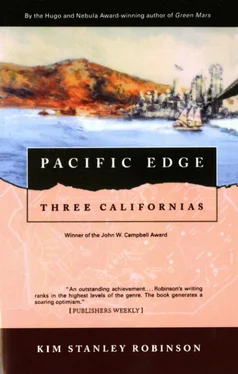
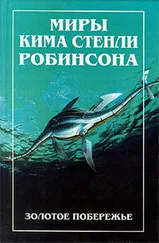
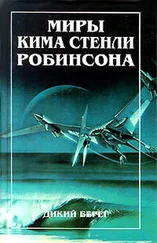


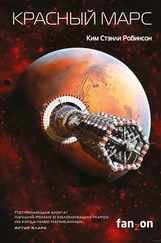

![Ким Робинсон - Годы риса и соли [litres]](/books/394367/kim-robinson-gody-risa-i-soli-litres-thumb.webp)
